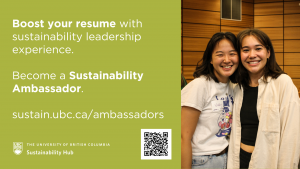Next week’s IRES Seminar will be in the Beaty Museum Allan Yap Theatre.
February 8, 2024: IRES Faculty Seminar with Tabitha Robin
Food as healer, food as helper: Towards Cree food sovereignties
Location: Beaty Museum Allan Yap Theatre (Basement, 2212 Main Mall). Please check in at the front desk on the main floor before going downstairs.
No food or drinks allowed in the Theatre.
Time: 12:30pm to 1:20pm
Zoom will be terminated if we encounter tech problems 5 to 10 mins into the seminar.
Talk summary:
Historically and contemporarily, colonial policies and prejudices have deeply affected Indigenous food systems and thus Indigenous bodies. For Cree peoples in Manitoba, these policies include the criminalization of practicing traditional medicines, residential schools and land dispossession in the name of development. However, despite the challenges and interruptions to food and cultural systems, Cree Elders understand food to be sacred, and moreover, a healer. This qualitative study, grounded in Indigenous research methodologies, sought to investigate the role of food in Cree culture, through understanding how Elders incorporate food into their helping and healing practices. Using metaphor to make meaning of the Elder stories, this research articulates the role of food in Cree culture: through feeding oneself, one’s ancestors, and one’s community. The Elders revealed the rich depth of Cree food knowledges that underlie Cree culture, from star stories, language, and grieving ceremonies to knowledge of plant and food medicines. This presentation is an exploration of Cree guidance for revitalizing and rebuilding Cree food systems as part of a larger Indigenous food sovereignty framework.
Dr. Tabitha Robin, Assistant Professor
Faculty of Land and Food Systems
Bio:
Tabitha Robin is a mixed ancestry Metis and Cree researcher, educator, and writer. She is an Assistant Professor in the Faculty of Land and Food Systems at the University of British Columbia. She spends much of her time learning about traditional Cree food practices.
See you next Thursday in the Beaty Museum Allan Yap Theatre!
_______________________________________________________________________________
Bonnie Leung
RES Program Support (she/her/hers)
Institute for Resources, Environment and Sustainability (IRES)
University of British Columbia | Vancouver Campus | Musqueam Traditional Territory
Aquatic Ecosystems Research Laboratory (AERL Building)
Room 429 – 2202 Main Mall | Vancouver, BC | V6T 1Z4 | Canada
Email: bonnie.leung@ubc.ca
Tel: 604-822-9249










